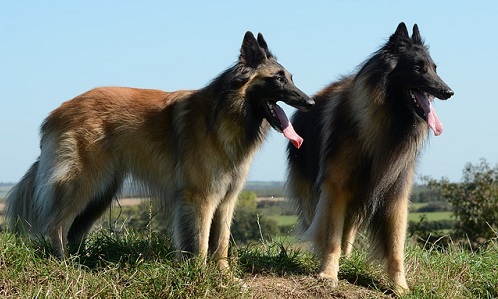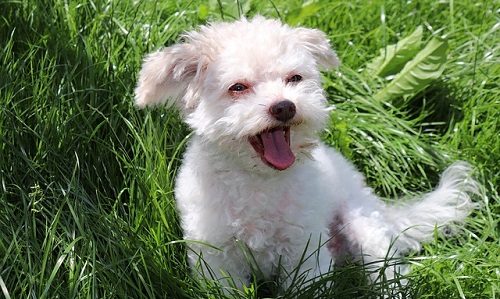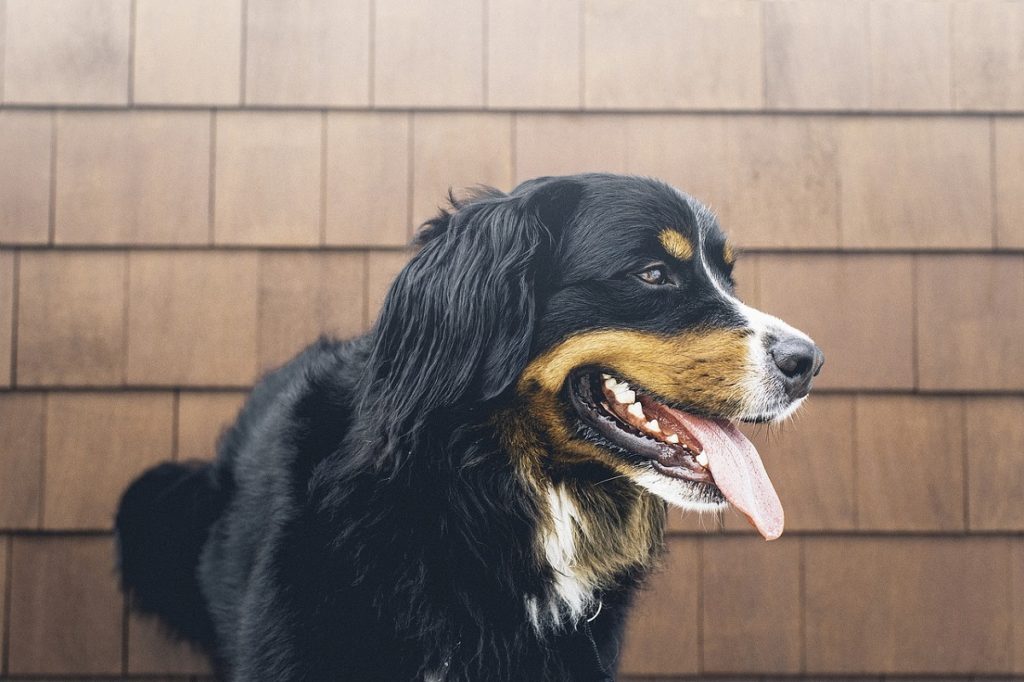Typically, panting and shaking are normal dog behaviors and their causes are generally pretty clear. When dogs get hot, panting helps cool them down. Shaking can do the same and may also be exhibited when they get excited. Older and obese dogs tend to show these behaviors more often. They may pant and shake more as a result of general weakness in the diaphragm and intercostal muscles.
While dog panting and shaking is a typical response in these scenarios, the combination of the two may still mean there is something wrong and could be a sign of a serious canine health condition. Allow this article to serve as a guide to help you better understand what it means if your dog is panting or shaking. Let’s dive deeper into some of the causes of each.
Heat Stroke
Panting and shaking in excess are the most common symptoms of canine heat stroke. Heat can affect dogs differently, some get hot easier than others and thus are more prone to heat stroke. Drooling, glassy eyes, overall canine weakness and an increased heart rate in dogs are all common symptoms. If you suspect your dog is overheating, move him to a shady spot and submerge him in cool water – however, avoid cold water, which could actually constrict blood vessels and make matters worse. Additionally, you should provide your dog with cool water to drink or even an ice cube to lick. Once your pup’s temperature has returned to normal levels, take him to the vet immediately.
Fever, Infection or Intoxication
 In some cases, panting and shaking may be the result of a canine fever or an infection in dogs. In others, maybe your dog has ingested something toxic, such as food or chemicals. If it’s a fever or infection and gets to a point where your dog is shaking and panting, he may have developed hyperthermia. Shaking and panting helps lower body temperature. In either scenario, the shaking and panting should not be ignored. Contact your vet immediately.
In some cases, panting and shaking may be the result of a canine fever or an infection in dogs. In others, maybe your dog has ingested something toxic, such as food or chemicals. If it’s a fever or infection and gets to a point where your dog is shaking and panting, he may have developed hyperthermia. Shaking and panting helps lower body temperature. In either scenario, the shaking and panting should not be ignored. Contact your vet immediately.
Heart Problems
How can heart problems lead to panting and shaking? If your four-legged friend has a heart problem like canine heart disease, it can actually impact his breathing. For example, an enlarged heart may be pressing against the lungs. Panting is a natural response in an effort to fill the lungs with air. Dogs then shake due to a lack of oxygen flow throughout the body. Heart problems require prompt veterinary attention.
Blood Sugar Imbalance
Shaking and panting can also be triggered when diabetic dogs become hypoglycemic. However, it’s not only diabetic dogs who are prone to low blood sugar. Certain breeds, such as the Italian Greyhound and Chihuahua, are also susceptible to low blood sugar simply because of their smaller and more delicate breeds. Help your dog recover quickly by placing one tablespoon of honey or maple syrup under your dog’s tongue allows the sugar to reach the blood quickly. Repeat this step every six hours or so while keeping your pup warm.
Injury or Pain
 If your dog is experiencing pain or has suffered an injury, excessive panting and shaking are common responses. Sometimes an injury is obvious and visible, however, in other cases the injury and/or pain may be internal, making it more difficult for you to recognize. Another common sign of internal injury is pale gums, but signs and symptoms vary. There could be a myriad of causes for pain or discomfort, so in any instance, it’s recommended you see a vet.
If your dog is experiencing pain or has suffered an injury, excessive panting and shaking are common responses. Sometimes an injury is obvious and visible, however, in other cases the injury and/or pain may be internal, making it more difficult for you to recognize. Another common sign of internal injury is pale gums, but signs and symptoms vary. There could be a myriad of causes for pain or discomfort, so in any instance, it’s recommended you see a vet.
Stress or Trauma
If your dog has experienced a stressful event, it’s very common for him to pant and shake. Especially in new environments or around foreign stimuli which may cause fear or anxiety in dogs. While dogs respond to foreign stimuli differently, it’s important for you to be aware of what may have caused the fear or trauma and remove it from your dog’s environment. Taking away the stressor or removing your dog from a stress-inducing situation is always the most effective prevention method.
Much like humans, dog’s can experience sudden changes in behavior. This can be a scary situation when you aren’t sure of the cause. Unfortunately, while panting and shaking can be more common in senior dogs, excessive panting and shaking are usually indicative of a health problem or some form of emotional distress. The most common cause is overheating or heat stroke, but any of the above explanations may be the culprit. If your four-legged companion is experiencing any of these issues, react quickly and contact your vet as soon as possible.
Sources:
- Werber, Jeff. “Is It an Emergency? Shivering, Lethargy, and More.” Pet Health Network, Accessed 3 Jan. 2019.www.pethealthnetwork.com/dog-health/dog-diseases-conditions-a-z/it-emergency-shivering-lethargy-and-more.
- “Dog Shivering or Trembling: Causes and Treatments.” WebMD, Accessed 3 Jan. 2019. www.pets.webmd.com/dogs/my-dog-shivering-trembling.
- Barchas, Eric. “Ask a Vet: What Causes Panting and Trembling in Senior Dogs?” Dogster, 10 May 2016, Accessed 3 Jan. 2019. www.dogster.com/lifestyle/ask-a-vet-what-causes-panting-and-trembling-in-senior-dogs.




